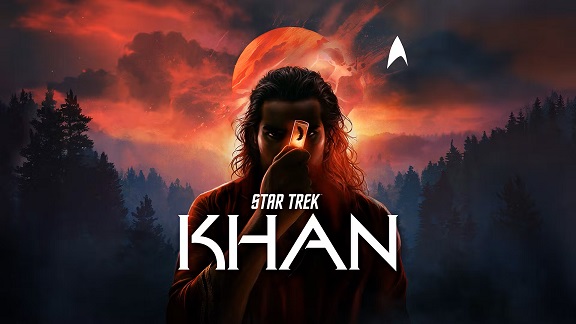Not... particularly bad in any aspect I can point to, but this one just didn't grab me as much as the last few.
Sorry, I have to disagree with you... I really enjoyed this one. (I do wonder if some of that is related to the fact that it's a holiday here, so I was listening during a peaceful afternoon, rather than after a stressful day at work...)
Some big reveals and events in this one. I was heartbroken over what happened to Madot, and Ursula's reaction to Khan, while driven by her emotional response, actually makes sense... why
would anyone want to bring a child into that world? (And of course, that argument mirrors ones people are making
today about our own world.) The reveal about who sent the logs to Lear initially surprised me, but it was something that afterwards I felt
shouldn't have surprised me, after last week.
I do agree that Sulu doesn't really come across looking too good here. I get what he's saying about evil, but I don't feel that trying to suppress historical investigation feels very... Star Trek-y. And ordering Tuvok to spy on a Federation citizen because he disagrees with her motives feels to me like he's stepping way out of line. But on the plus side, at least I'm starting to get somewhat more interested in the framing story, whereas up to now, it's just felt kind of... there.
And of course, like all good Star Trek, this episode seemed to offer some reflection back on ourselves. Sulu's treatise on evil, and Delmonda's discussion over dinner with Khan, both seemed to be offering commentary on what is currently going on in the world, and really resonated with me. I even decided to use one of Delmonda's quotes as my current sig.
All in all, I liked this one a lot, and can't wait to see where things go next!
(And for anyone curious, I had the usual Instacart ad at the beginning (someone should tell them it's currently mid-October, and nowhere near any reasonable definition of "summer"), and then two ads in the story itself, right after the dinner scene between Khan and Delmonda. The first was a repeat of the same travel service ad from last week, which is called Axel, and I'm more convinced now it's Wrenn Schmidt narrating--is anyone else getting that one?--but of course I can't afford to travel, so it means nothing to me. And the second one was for a company in my province trying to sell me farm materials, for a farm I definitely do not have. Certainly wasn't worth breaking up the story flow for.)

